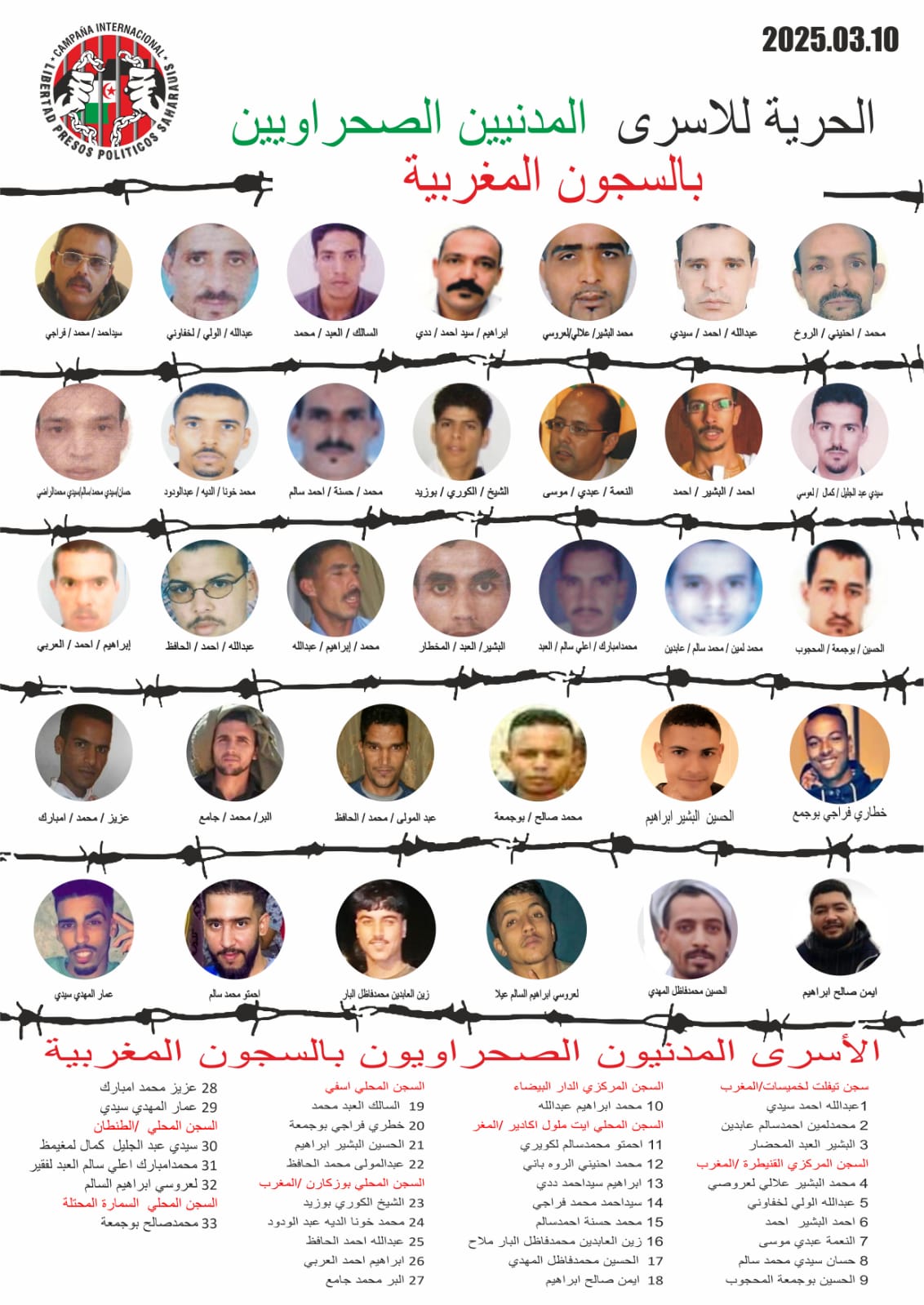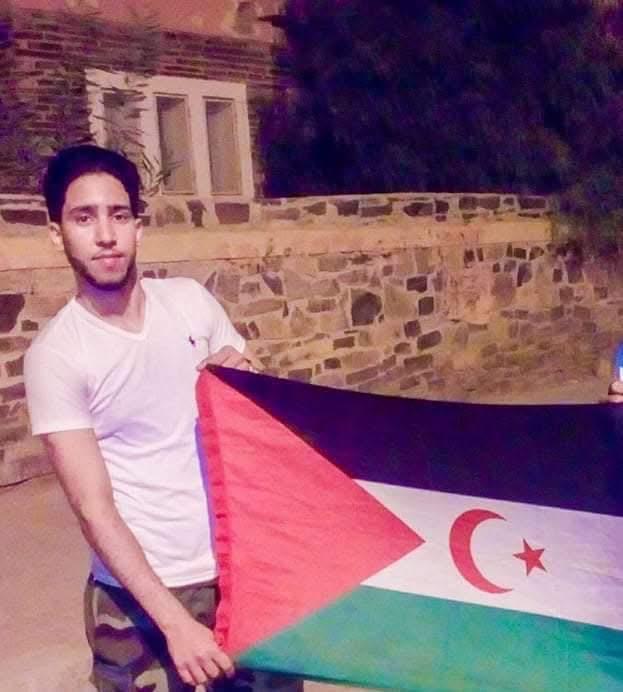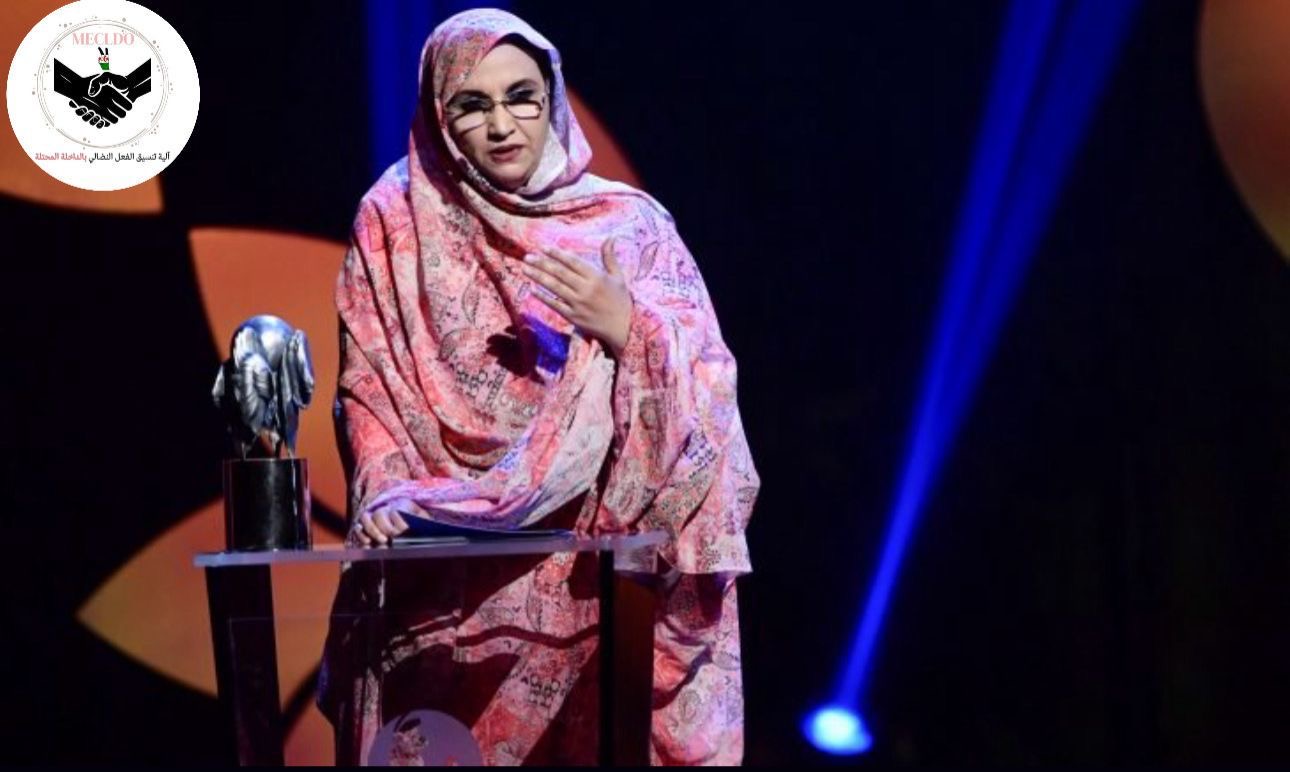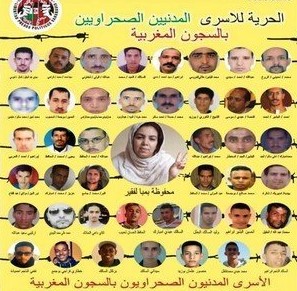
Occupied El Aaiun, April 14, 2025 (SPS) – Mr. Abdallah Swailam, Director of the Coordination Office for Occupied Territories Affairs in the Canary Islands, stated on Sunday that Moroccan intelligence agencies and repressive forces have surrounded the homes of Sahrawi civilian prisoners' families from the Gdeim Izik group in occupied El Aaiun, creating an atmosphere of intimidation to dissuade them from supporting the national and international campaign demanding the release of their detained relatives.
Moroccan security forces imposed a police siege on the homes of the detainees' families in occupied El Aaiun, coinciding with the national and international campaign announced by the Sahrawi President, Secretary-General of the Polisario Front, Mr. Brahim Ghali, calling for the release of Sahrawi civilians imprisoned by the Moroccan occupation.
Regarding these violations, Abdallah Swailam told APS that "as part of the Moroccan colonial policy of repression against Sahrawi civilians in the occupied territories, and in blatant violation of human rights, the Moroccan occupation forces have surrounded the homes of families of political prisoners in Moroccan jails to prevent them from reaching the house of political detainee Hassana Dah, a member of the Gdeim Izik group."
He pointed out that the purpose of the planned gathering was for the families to declare their participation in the national and international campaign for the release of all Sahrawi political prisoners held in Moroccan jails.
Abdallah Swailam condemned this siege and obstruction as "a flagrant violation of human rights, the freedom of peaceful assembly, and expression, as guaranteed by the International Covenant on Civil and Political Rights." He also stressed that it constitutes a breach of the Fourth Geneva Convention, particularly Article 27, which mandates the protection of civilians and respect for their fundamental rights under occupation.



